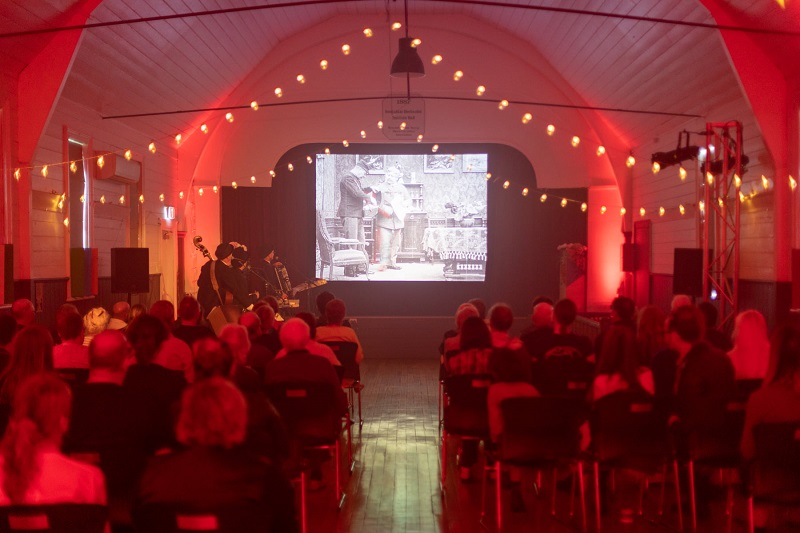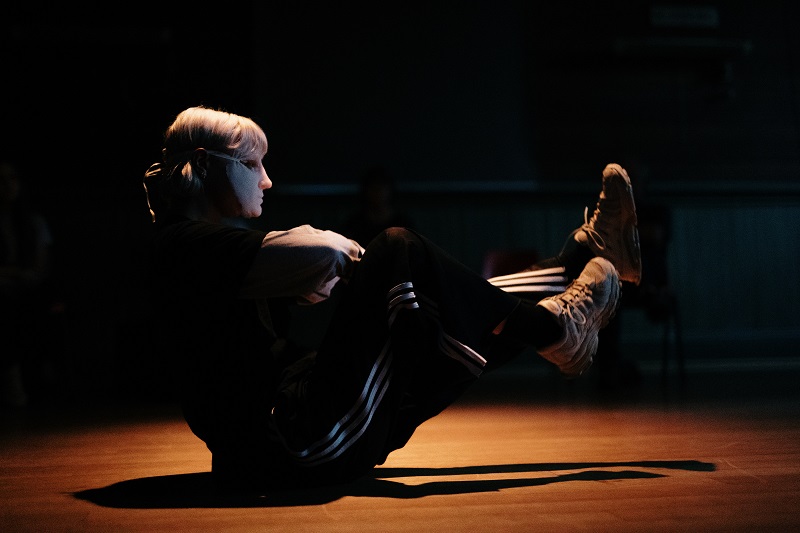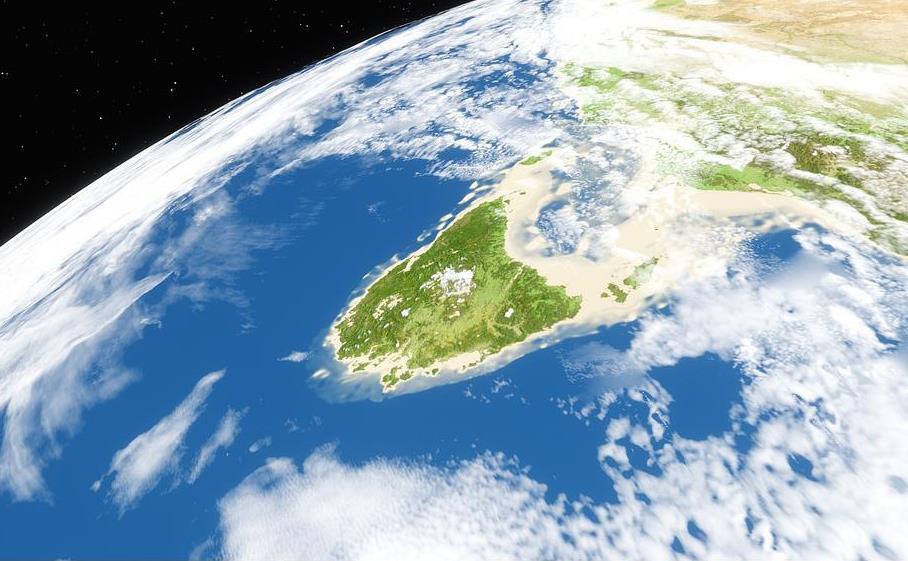This Saturday 1 May, Tasmania goes to the polls – a year early – to elect its next government. A recent, though contested, poll suggests the Liberals will win approximately 12 of the 25 Tasmanian lower house seats, denying them a majority.
Regardless of the election’s outcome, the new Tasmanian government will have much to consider, with health and housing being key issues facing the state. Then there’s the small matter of the pandemic.
Arts policy and the creative industries have received little attention in the election campaign to date. In keeping with previous elections around the country, ArtsHub approached the Tasmanian Greens, the Liberal Party’s current Minister for the Arts, and the Shadow Minister for Arts and the Creative Industries, for opinion pieces outlining their policies and election promises so that ArtsHub’s readers could be appropriately informed.
Only the Liberal Party has provided a detail response; you can read the Hon Elise Archer MP’s statement here.
Shadow Minister for the Arts, the Hon. Jen Butler MP, told ArtsHub, that Labor is committed to supporting the Tasmanian arts and screen sectors in the years ahead.
‘We know that the Liberal Government both Federal and State were dismissive of the creative sector during COVID,’ she said.
‘We fought to have theatre capacity re-activated and were frustrated by the lack of advocacy for the industry. It seemed opportunistic that capacity was announced by the Government after the election was called. Other states such as Queensland worked with their industry tirelessly to develop plans to full capacity 12 months before the Tasmanian Government.
‘We know that the Liberal Government both Federal and State were dismissive of the creative sector during COVID.’
– Shadow Minister for the Arts, the Hon. Jen Butler MP
‘It seemed bizarre that emphasis on sport, hospitality and tourism sectors were prioritised over the creative sector. The sector should have been provided the same support. There was very little advocacy, whether this be a result of the larger groups being maintained by JobKeeper or fear of Government funding reprisal if they spoke out publically.
‘Promoting and respecting our unique Tasmanian creativity is key. Tasmania’s creative diversity and culture is one of the aspects of our identity that sets us apart from the rest of Australia and the world,’ Butler told ArtsHub.
The Opposition’s arts policy includes: the Creative Kids program providing vouchers of up to $100 to encourage eligible school-aged children to take part in creative and cultural activities; a $2.5 million investment in upgrades to the Princess Theatre and Earl Arts Centre in Launceston to improve accessibility and safety and enhance the venues’ flexibility; and an additional $3 million to Screen Tasmania’s Screen Innovation Fund to further promote Tasmania as a destination of choice for film and production. It can be read online.
Dr Rosalie Woodruff MP, the Tasmanian Greens’ Spokesperson for Arts, told ArtsHub: ‘Lutruwita/Tasmania is celebrated nationally for its vibrant arts scene. That is despite, not due to, the activities of the current government.
‘The Liberals have only ever seen the arts as a money-making exercise. They haven’t valued the island’s artistic culture, or the diverse talents and works our artists create. They have no interest in nurturing grassroots arts-making, the basis of all strong arts communities.
‘During their seven years in office, the Liberals cut the guts out of community and regional arts. This is where our talent springs from, and is an important part of healthy, resilient communities,’ Woodruff continued.
‘The Greens would enliven our island’s arts from the grassroots, reinstating funding to Wide Angle and Theatre Tasmania. We would also invest in regional and emerging artists through our Community Arts Grant Fund.
‘Our writers are some of the nation’s finest and government should be investing in that talent. We would also increase the Premier’s Literary Prize to $100 000, and widen its scope to include categories for fiction, non-fiction, poetry, young adult, children’s, and other genres,’ she concluded.
The Tasmanian Greens’ arts policy, including a $100,000 annual investment in Theatre Tasmania and $1 million for regional arts organisations, can also be read online.
‘During their seven years in office, the Liberals cut the guts out of community and regional arts.’
– Dr Rosalie Woodruff MP, the Tasmanian Greens’ Spokesperson for Arts
Regardless of which political party holds power after Saturday, there are many key areas that Tasmanian artists and artworkers wish to see prioritised. Here, sector representatives from across the state – and from numerous artforms – put their own policy suggestions forward.
Caitlin Comerford, Artistic Director, Stompin
‘After a year void of live arts events and projects, we would like to see the next Tasmanian Government invest and commit to the arts as a thriving and vital part of the State’s identity. The pandemic and subsequent loss of arts activities has heightened awareness and appreciation of how the sector connects communities, supports emotional, mental and physical health, encourages self/societal reflectiveness, and enlivens and enriches lives.
‘Small-to-medium arts organisations are in desperate need for investment in multi-year funding opportunities to support stability and certainty; not only for these companies but also the artists and arts workers who run them. These organisations commit to their communities time and time again, however the uncertainty of their capacity to deliver is destabilising and hugely stressful. More organisations with the surety of multi-year funded programs will increase resilience, vibrancy and quality for arts and culture in Tasmania, boosting the island’s profile nationally and internationally.
‘Short turn-around program funding is not only inefficient for small organisations in regards to time and resources, but it is truly terrifying and exhausting to program a year of events that are hypothetical. I truly believe that long-term investment and support for the arts sector will not only benefit Tasmania’s community but will also grow the Tasmanian economy through programmed arts and cultural events.’
Caroline Sharpen, Chief Executive Office, Tasmanian Symphony Orchestra
‘We are very fortunate in Tasmania that there is multi-partisan appreciation of the arts and recognition of their value. We are all custodians of the Tasmanian brand – and it’s lost on no one that it’s one of the fastest rising cultural brands on the planet. Our elected members know that our culture is the glue that binds our society together and our artists, or storytellers, are the architects of our empathy, understanding, learning and creativity.
‘For the government that is elected on 1 May – yes, we need (a) policy. But policy is crafted in language. Let’s co-create the language that honours and respects the contribution of artists. Let’s tell the stories of their impact and the transformational power of how they make us feel. Let’s make sure that our voices are diverse and our words are inclusive. And please, let’s craft the rhetoric to speak of unity, achievement, and demonstrated social and cultural return on investment.’

The Tasmanian Symphony Orchestra. Photo credit: Caleb Miller.
Cheyne Mitchell, Artistic Director, Mudlark Theatre Company
‘We need to support companies and individuals with more ways to make work. Arts businesses need increased means to employ artists and the reassurance that when they take the risk of creating work they will be supported if those works are impacted by restrictions. We would like to see rehearsal/making spaces in the north of the state, and increased funding to give makers room to create work.
‘People need human connection now more than ever, and whether they get that by consuming entertainment in groups, or participating in the creation of it, the community will be better for it.’
Clementine Blackman, Chair, Sawtooth ARI
‘Tasmania is home to 541,071 people with 5.5% identifying as Aboriginal or Torres Strait Islander and over 159 languages spoken here by a multicultural population born in over 177 countries, other than Australia. Over one quarter of our people identify as living with a disability and 48% are functionally illiterate.
‘Cultural diversity is part of our Island’s story and needs to be more visible in our government’s agenda in place of existing and outdated homogenous perspectives of colonialist culture that damage our society’s health and development.
‘Our incoming government must prioritise adequate representation of First Nations people across every level of government and fund cultural institutions do the same.
‘Access to art and culture in society is community-building, provides education and can play a role in preventative medicine for mental health and other conditions.
‘Poor mental health impacts our health system more than cancer and heart disease and Tasmania’s healthcare system in the wake of COVID-19 is “the worst it’s ever been” with healthcare workers overloaded and suffering stress.
‘Policy directed toward accessibility across services is past due; public transport, wayfinding, government services and websites are not operating at the bare minimum. Digital and physical accessibility modules and physical access for government and cultural institutions is a first step that needs to be specifically funded.
‘We need to raise our rate of literacy. No improvements to any services in our society including our healthcare crisis will ever be fully realised without a grassroots campaign that tackles culturally engendered gaps in our education systems across Tasmania’s schools and family culture.’
Craig Perkins, Chair, Ten Days on the Island
‘Historically, the Liberal and Labor parties’ support for the arts has been relatively similar, with slight changes in emphasis. The Liberals tend to favour an industry development approach whereas Labor gives more weight to community participation. Although the arts have not featured prominently in Tasmania’s 2021 election campaign, the commitments of both major parties are comparable.
‘For example, a re-elected Liberal government would establish an $8M Events Support Attraction Fund to secure existing, iconic events and festivals and attract new events. Whereas Labor would create a $5M Reimagined Events Fund to support events and festivals to adapt to the changed and challenging environment, alongside a Creative Kids Voucher and the promise to invest $2.5M in upgrades to theatres in Launceston. The Greens have nominated commitments which align with specific sector constituencies.
‘Ten Days on the Island is fortunate to enjoy the support of all parties. We would love to see the Government enriching the role the arts play in defining Tasmania’s unique cultural identity. We support increased investment in Tasmania’s Aboriginal culture, in local, place-based arts initiatives, and in cross-portfolio activities that promote the value of the arts in health, education, justice, environment, etc.’

Ten Days on the Island’s If These Halls Could Talk at Mechanics’ Institute Hall, Scottsdale. Photo credit: Sonja Ambrose.
Maeve Mhairi MacGregor, Artistic Director, and Jane Polley, Chair, Tasmanian Theatre Company
‘Arts and culture are essential tools for a community to evolve and grow through collective moments of change. Now is the time to invest in the arts to bring Tasmanians together.
‘We would love the incoming government to commit to a cultural and artistic strategy that is not only about a COVID response and economic recovery, but is a brave and ambitious vision of Tasmania’s artistic and cultural future.
‘Supporting major institutions and festivals is vital for our cultural life, but a truly successful arts and cultural policy invests in long term, year-round projects and Tasmanian artists themselves. It is our hope that the entire arts ecology will be supported through increased investment in Arts Tasmania’s grant programs so that funding parity across art forms is achievable.
‘Tasmanian Theatre Company’s distinctive vision and long term embedded identity within the community means we have the potential to be a flagship cultural leader for Tasmania.
‘With greater investment in our vision to bring innovative, iconic and essentially Tasmanian stories to life, the incoming government can be assured of extensive benefits. The outcomes of a confident theatrical sector are not only economic, but also impact social cohesion, cultural confidence and national and global reconnection.’
Nathan Tucker, Executive Co-Director, RANT Arts
‘The State Government’s recent targeted funding for the Tasmanian arts sector supporting CACD, cross-sector partnerships and new works for new markets, should be commended.
‘RANT believes that significant extra support is needed to facilitate sustainable growth for the sector but to also address the long-term effects of the COVID-19 pandemic. Having delivered the Federal Government’s Recovery Boost to Tasmania through the Regional Arts Fund, we have seen firsthand the need and demand for direct support.
‘We would like to see a long-term commitment over the next four years towards significantly increasing funding for both organisations and individuals. We would also like to see continued specialised targeted funding, in particular for regional communities, young/emerging artists and arts accessibility.
‘As we are often reminded by many of the regional artists RANT assists, it is difficult to drive cultural growth and support vibrant, active and resilient communities on a McValue meal budget.’
Peter Choraziak, Festival Director, Festival of Voices
‘COVID-19 has, in a way, demonstrated the worth and value of arts and allied industries in our lives. The two hardest hit sectors were arts & events and hospitality (which I believe are inextricably linked). When these two sectors were shut-down they were greatly missed – and that is the real proof point of the VALUE of arts & entertainment in the community.
‘Yet, for some reason, political parties and independents don’t appear to share the same view. At all levels of Government, Arts & Entertainment (at best) are assigned junior portfolios. For the most part, they are usually tagged onto other portfolios like Tourism, State Growth or for reasons I cannot fathom, Justice.
‘Festivals like ours provide content that drives the visitor economy. Less content = fewer visitors. Festivals like ours give voices to artists and communities – they enable sharing of stories that matter. Festivals like ours heal and make us feel better about ourselves.
‘2020 forced us all to look inwardly and what did we find? A rich pool of grass roots talent bursting forth. Why? Because the sector can respond to a crisis with solution-based immediacy, using art and music to comfort.
‘Let’s not miss this opportunity to nurture and encourage Tasmanian artists to develop their work and present it to the world. It’s just a question of whether our leaders and the decision makers actually recognise their worth.’
Peter Matthews, President, Tasdance
‘Any investment in the arts is a good investment returning seven dollars for every government dollar. Tasmania is positioning itself as a cultural tourism destination, therefore arts activity is essential to the state’s economic posterity as well as for individuals and communities and of course for artists and art forms.
‘Tasmania requires a multi-dimensional and long form approach to its investment in the arts. Let’s not leave anyone behind or keep expecting artists/organisations to scramble for funding year to year to deliver works, while uncertain of their future.
‘We need to enable the continuing development of compelling Tasmanian work that excites and engages with the wider community. Inviting the traditional, to the contemporary, to the recently arrived to have a voice as part of our cultural landscape.
‘We need upgrades and security for our beloved cultural institutions, alongside innovation and repurposing of spaces, so art can be experienced from coast to coast.
‘Finally, a commitment from early childhood to the professional sector for inclusive and inspiring development programs and projects, ensuring that every Tasmanian has the ability to be creative, be expressive and be proud of a rich artistic and cultural island.’

Amber McCartney in Tasdance’s Where Do We Start? (in partnership with Ten Days on the Island). Photo credit: Nick Hanson.
Tim Munro, Chief Executive, Theatre Royal
‘The Government has developed its Cultural and Creative Industries Recovery Strategy: 2020 and Beyond – which is a good document and covers much of what I have to say. Ensuring the strategy is, and remains, well-funded is perhaps the most important thing the incoming government could do. Further, continuing involvement with the sector in the formulation of the programs remains most important I think.
I support that strategy – my comments below are at a somewhat lower, detail level, but are consistent with the strategy I think.
Broadly, I think the performing arts industry would welcome policy and programs that work even more closely with, and encourage, a sector ready to blossom. None of my comments are intended to be critical of existing programs – there has been increased funding in the past years and more awareness of the value of Tasmanian cultural endeavour – the government strategy clearly indicates this.
- Continuing support for post-COVID recovery. Alongside artist funding there is an argument to direct some of the funding/support towards re-engaging audiences in attending live performance.
- Encouraging artists to tell, and audiences to hear, Tasmanian stories. The government strategy specifically outlines the championing of Tasmanian Stories – to help theatres deliver this, specific communications (and maybe funds) to support ‘made here’ works. I see this as most important.
- Support for Tasmanian theatre/stories to tour nationally and internationally. More theatre works could – probably should – leave the island and tour. Specific programs aimed at this could be most beneficial. Tasmanian presenting venues would be well placed to partner or assist in a program that funded Tasmanian made work to tour.
- Encouragement for the development of cultural entrepreneurship – by that I mean funding and perhaps more importantly, programs, to help arts organisations with the income risk;that of selling tickets and generating income. This would be in addition to arts funding not in place of but could include market research, guarantee against loss type funding, matching dollars earned at some ratio with funding – to encourage earning income. I think a stronger box office would be beneficial to arts orgs and is an area for development.
- Attracting tourists to see local work. There is substantial support for festivals and events through the tourism and event frameworks, this could extend to other theatre productions and performance seasons. Often theatre events are too small to “fit” the events and tourism model – but adding theatre opportunities (probably quite targeted) to the “short break” tourism thinking may have value for theatre producers. Again this aligns with the working with Brand Tasmania areas the government has outlined.’
Travis Tiddy, Artistic Director, The Unconformity
‘I’ve been pleased with the Tasmanian Government’s support for the arts and events in response to COVID-19. New funding initiatives such as a guarantee against ticket-sale loss for events, funding for more socially-engaged practice, creation of new work for new audiences, and an uplift in the funding pool for arts organisations are all welcome initiatives.
‘Post-election, I hope that whoever is in government will continue to have a flexible approach. The most appropriate way to support the sector right now may not apply in 18 months’ time. Consulting with the artistic community and being prepared for funding and policy changes will be important as artists, audiences, organisations and communities evolve through the COVID-19 situation.’
Vern Field, Managing Editor, Island Magazine
‘The significance of the arts in our lives has never been more apparent than during COVID restrictions. Tasmanian Government assistance for the arts during these times, such as the Arts Recovery Support Initiative, has been invaluable; however, it is critical that post-election arts priorities continue to build on this support and provide greater security for the Tasmanian arts sector.
‘It would be enormously beneficial to small arts organisations such as Island if opportunities were increased for state-based multi-year organisational funding. Multi-year funding offers the security and stability that is essential for effective planning and delivery of more ambitious projects and programs. This need for support from the Tasmanian Government has intensified in recent years in light of reduced opportunities for multi-year organisational funding from the Australia Council, as well as increased pressure on the philanthropic sector, particularly through COVID.
‘Tasmanian arts organisations, both small and large, old and new, enrich our beautiful state. Organisations such as Island are also a vital mechanism for supporting the careers of artists, helping to build their national profile, and adding to the cultural richness and diversity of Australia as a whole. Long may that continue.’





